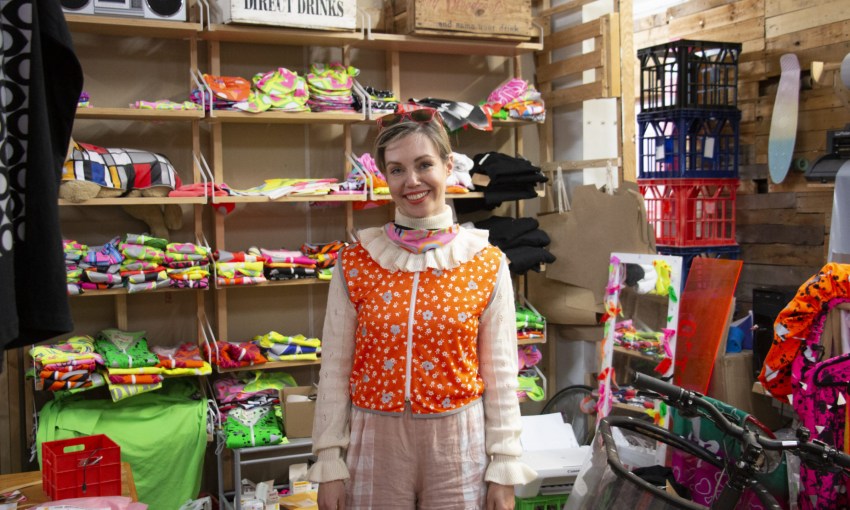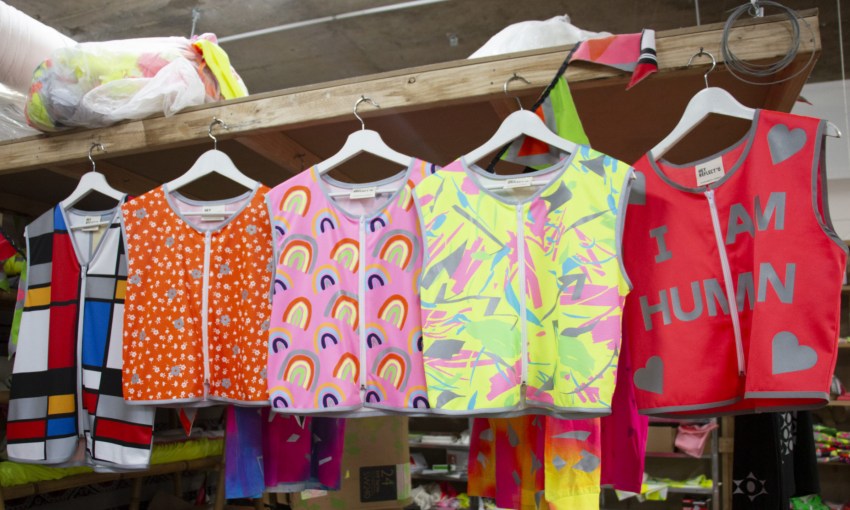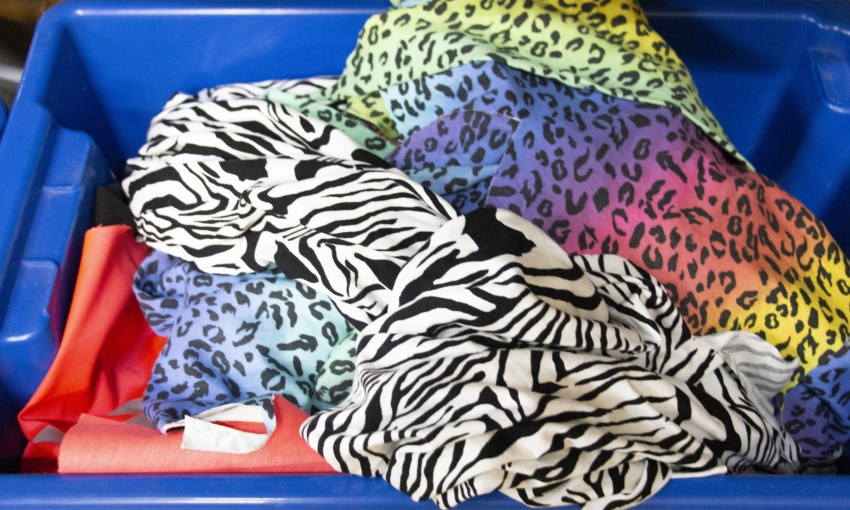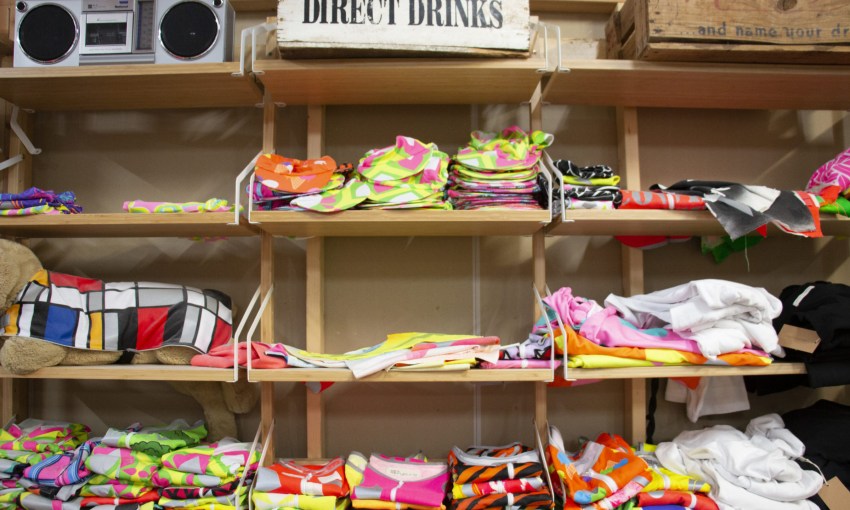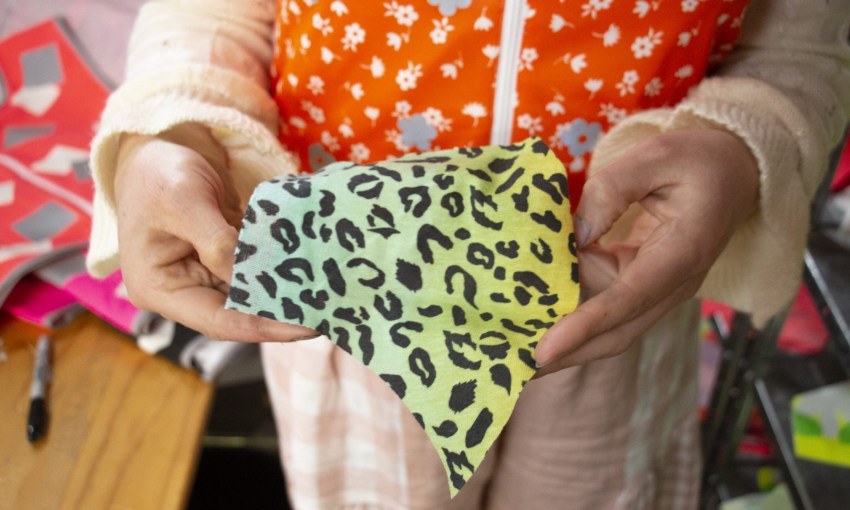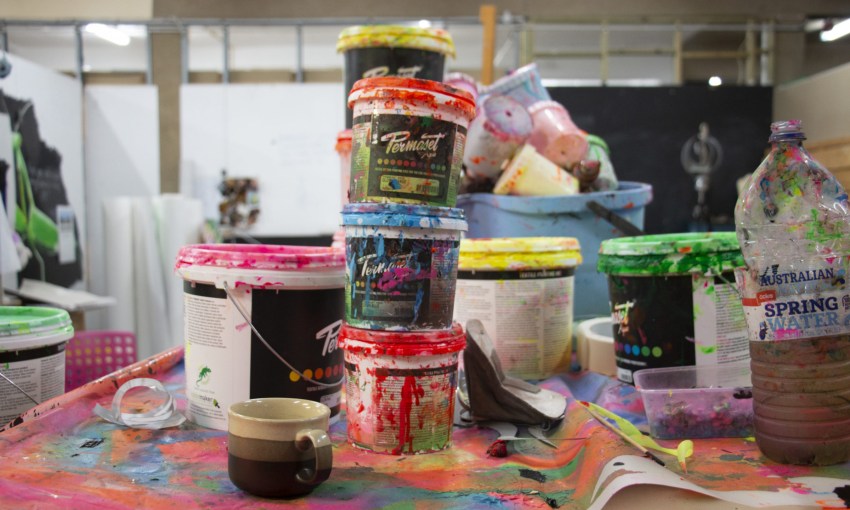Sustainability-minded designer Lisa Penney, who transforms plastic bottles and deadstock fabric into Hey Reflecto's face masks and high-vis cycling vests, saw a significant pandemic bump last year, generating half a million dollars in sales.
How the pandemic pushed Hey Reflect’o to shine even brighter
For a long time, fashion designer Lisa Penney didn’t consider her business to be totally ethical. This is despite her choice to use disused recycled material for her reflective bag covers and cycling vests and spending extra money to secure ethical labour overseas.
“The only one who the business was not ethical for was me,” says Lisa, who founded Hey Reflect’o seven years ago. “Because I was the one doing 16-hour days, being paid two bucks an hour because I’m literally trying to make it work. It’s hard.”
Speaking with the designer inside her studio within The Mill, we notice her hands are covered in ink – an indicator of a hard day’s work. She tells us her most recent outgoing shipment of products garnered $8000 in sales. “I’m a bit of a survivor,” she says, “and I make it work.”
Lately, Lisa has been working up to 15 hours a day to meet the demand. Her tale of the labour of small business juxtaposes against the prim and proper ensemble she’s donned for us today: a ruffled beige cotton jumper paired with light pink linen pants.
Like any good businessperson, Lisa is a walking advertisement for her own products. Her outfit is punctuated by a Hey Reflect’o burnt orange reflective high-vis cycling vest and face mask.
Lisa’s unshakable love for her brand is what keeps her coming back to the studio. “I’m obsessed with my products; I think it’s a good idea,” she says. “And now it works.”
Prior to COVID-19, Lisa wasn’t working these manic hours. She would’ve been lucky to receive 10 orders from a mail-out, rather than her latest 60. Her belief in her brand sustained her through these quieter periods, too.
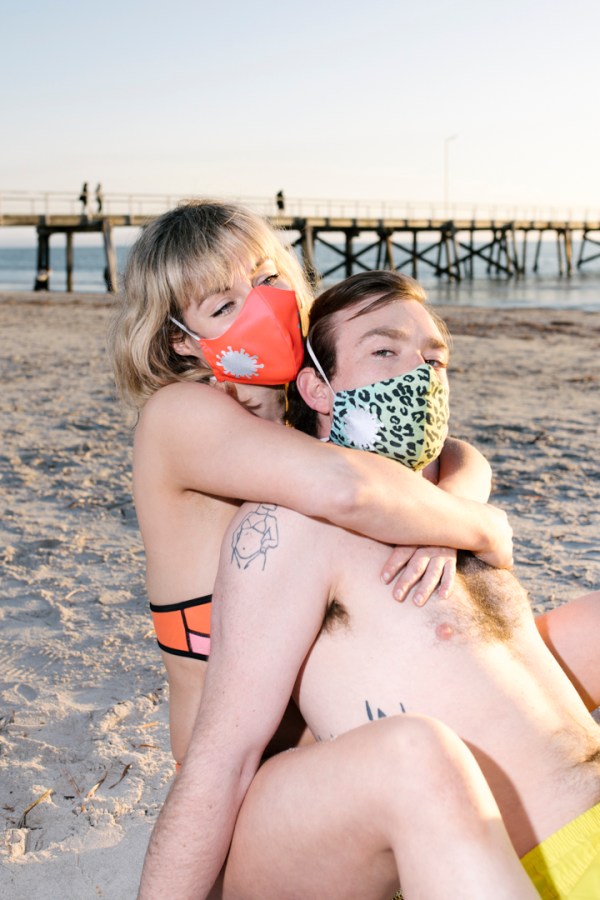
Hey Reflect’o face masks in coral and cheetah print. This picture: Morgan Sette
Tuesday, March 23, 2020 was when things changed for Lisa and Hey Relect’o.
“There was a day when the face masks came into effect,” she says. “I was selling them on my own, and then immediately had to pay a team to help me.”
When South Australia was plunged into a snap lockdown in November last year, the government announced face masks were mandatory when leaving the house for an essential service or essential item. This was South Australia’s Mad Mask Scramble.
For a laugh, Lisa says she produced a simple cloth face mask, sewn together from the offcuts of her vest range, and advertised it online. The gag paid off.
“I posted myself in one saying ‘We’re making face masks’ and everyone was DMing me about it,” she says. “I’m like, ‘Okay, I’ve got to put these online.’ The demand was there – I just had to keep up with it.”
Face mask fever eventually tapered off, and they’re now “just another product like everything [else]”, Lisa says. But last year, her high-vis cycling vests were also selling off the racks, tracking alongside the uptake in bikes. This too she credits to the pandemic.
“That’s why all the bike businesses did heaps well – because people were travelling by bike rather than the public transport,” she says.
“But then I had to choose one or the other, and the face masks are a lot easier to make than the vests are. I couldn’t do both – especially with the high demand of face masks. Otherwise I had two businesses during the pandemic.”
During November, Lisa paused manufacturing her multicoloured vests and made masks her main focus. She recently returned to the vests, which is where her heart lies, and now employs two part-time seamstresses locally to manage demand.
Hey Reflect’o generated $500,000 worth of sales last year, but most of that money went back to paying staff and taxes, Lisa says. After settling those bills, the entrepreneur says she took home $80,000 “for the biggest slog” she’s had to endure.
In the Hey Reflect’o studio, we’re surrounded by dozens of fluorescent garments, and we wonder, with all due respect to the flourishing business, where they will all find a home.
This is not the first time Lisa has heard this question, and it is the pilot light that keeps her motivated to push her business to higher heights.
“Before the pandemic, I heard a guy comment outside my workspace that I was never going to sell all my vests. They’ve flown off the shelves,” she says with a smirk.



